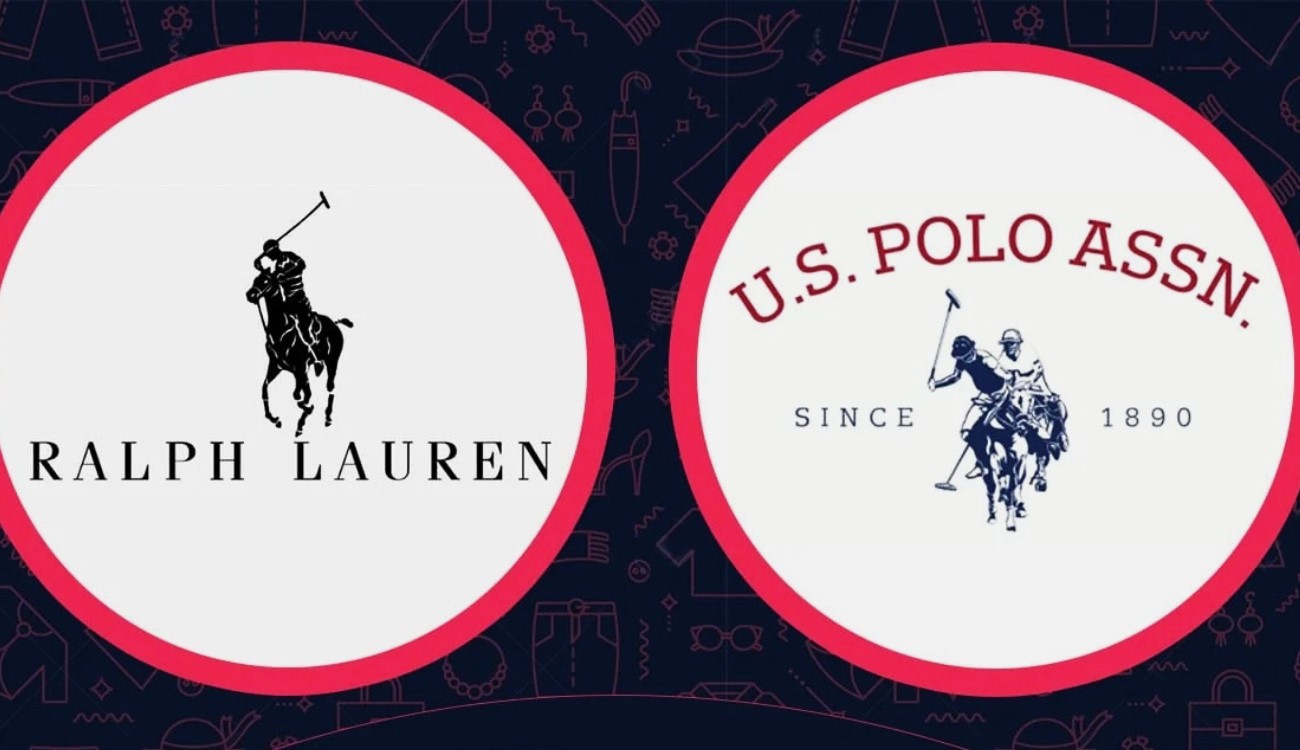Home>Lifestyle>The Ultimate Shampoo Showdown: Natural Vs. Conventional – Which Reigns Supreme?


Lifestyle
The Ultimate Shampoo Showdown: Natural Vs. Conventional – Which Reigns Supreme?
Published: February 3, 2024
Discover the ultimate showdown between natural and conventional shampoos to find out which reigns supreme for your lifestyle. Explore the pros and cons to make an informed choice.
(Many of the links in this article redirect to a specific reviewed product. Your purchase of these products through affiliate links helps to generate commission for Noodls.com, at no extra cost. Learn more)
Table of Contents
Introduction
Shampoo is an essential part of our daily grooming routine, but the choices available can be overwhelming. With shelves packed with an array of products, it's no surprise that consumers often find themselves pondering over the decision between natural and conventional shampoos. Each type comes with its own set of advantages and drawbacks, making the selection process a daunting task. In this comprehensive guide, we will delve into the world of shampoos, dissecting the key differences between natural and conventional varieties. By the end of this exploration, you'll be equipped with the knowledge to make an informed decision about which type of shampoo reigns supreme for your hair care needs.
The Ultimate Shampoo Showdown: Natural vs. Conventional – Which Reigns Supreme?
What Makes a Shampoo Natural or Conventional?
When it comes to deciphering the labels on shampoo bottles, understanding the distinction between natural and conventional varieties is crucial. Natural shampoos are crafted from botanical ingredients, often derived from plants, herbs, and essential oils. These formulations typically avoid synthetic chemicals, such as parabens, sulfates, and artificial fragrances, opting for organic and eco-friendly alternatives instead. On the other hand, conventional shampoos are formulated with a blend of synthetic compounds, including surfactants, preservatives, and fragrances, often incorporating lab-created substances to achieve specific cleansing and conditioning properties.
Natural Shampoo
Natural shampoos pride themselves on harnessing the power of nature, featuring ingredients like aloe vera, coconut oil, argan oil, and tea tree oil. These formulations are free from harsh chemicals, making them suitable for individuals with sensitive scalps or those seeking a gentler approach to hair care. The absence of synthetic additives aligns with the ethos of sustainability and environmental consciousness, appealing to consumers who prioritize eco-friendly products.
Conventional Shampoo
Conventional shampoos, in contrast, rely on a blend of synthetic compounds to deliver cleansing, foaming, and conditioning effects. Ingredients such as sodium lauryl sulfate, parabens, and artificial fragrances are commonly found in these formulations, designed to provide effective cleansing and lathering properties. While these shampoos may offer immediate and noticeable results, the long-term impact of prolonged exposure to synthetic chemicals is a topic of concern for many consumers.
Understanding the fundamental disparities between natural and conventional shampoos empowers consumers to make informed choices aligned with their preferences and values. Whether opting for the botanical allure of natural ingredients or the immediate efficacy of synthetic compounds, the decision ultimately hinges on individual priorities and the desired outcome for hair care.
The Benefits of Natural Shampoo
Natural shampoos offer a myriad of benefits that cater to the discerning needs of individuals seeking a holistic approach to hair care. Here's a closer look at the advantages that set natural shampoos apart:
-
Gentle Formulations: Natural shampoos are renowned for their gentle and nourishing formulations, free from harsh chemicals and synthetic additives. By harnessing the power of botanical ingredients such as aloe vera, coconut oil, and essential oils, these shampoos provide a mild cleansing experience that is especially beneficial for individuals with sensitive scalps. The absence of sulfates and parabens ensures that natural shampoos cleanse the hair without stripping it of its natural oils, promoting a healthier scalp and lustrous locks.
-
Soothing for Scalp and Hair: The botanical ingredients in natural shampoos possess soothing and moisturizing properties, making them ideal for individuals with dry, itchy, or irritated scalps. Ingredients like tea tree oil and argan oil are known for their calming effects, helping to alleviate scalp discomfort while imparting hydration to the hair strands. This gentle approach to cleansing and nourishing the scalp and hair can lead to improved overall hair health and manageability.
-
Environmentally Friendly: Natural shampoos are often crafted with a focus on sustainability and environmental responsibility. The use of organic and eco-friendly ingredients, as well as biodegradable packaging, aligns with the ethos of eco-conscious consumers. By choosing natural shampoos, individuals can contribute to reducing their environmental footprint, supporting the preservation of natural resources and minimizing the impact on ecosystems.
-
Reduced Chemical Exposure: Opting for natural shampoos minimizes exposure to potentially harmful synthetic chemicals commonly found in conventional hair care products. By avoiding ingredients such as parabens, phthalates, and artificial fragrances, individuals can mitigate the risk of adverse reactions and long-term health concerns associated with prolonged exposure to synthetic compounds. This aspect is particularly appealing to those who prioritize clean and non-toxic personal care products.
-
Suitable for All Hair Types: Natural shampoos cater to a wide spectrum of hair types, ranging from fine and straight to thick and curly. The versatility of natural formulations allows individuals to find products tailored to their specific hair needs, whether it's addressing dryness, frizz, or maintaining color-treated hair. The diverse range of natural ingredients ensures that there is a suitable option for everyone, promoting inclusivity in hair care solutions.
In essence, the benefits of natural shampoos extend beyond mere hair cleansing, encompassing holistic well-being, environmental consciousness, and personalized hair care experiences. By embracing the natural approach to hair care, individuals can nurture their hair while aligning with their values of sustainability and health-conscious choices.
The Drawbacks of Natural Shampoo
While natural shampoos offer a plethora of benefits, it's essential to acknowledge the potential drawbacks associated with these products. Understanding the limitations of natural shampoos provides a comprehensive perspective, enabling consumers to make well-informed decisions aligned with their hair care needs and preferences.
-
Limited Lathering and Cleansing Power: One of the common drawbacks of natural shampoos is their tendency to produce less lather compared to conventional shampoos. This can lead to a perception of inadequate cleansing, especially for individuals accustomed to the rich lather associated with conventional shampoos. The reduced lathering may pose a challenge for those with oily or heavily soiled hair, requiring additional product or more thorough rinsing to achieve the desired level of cleanliness.
-
Adjustment Period for Hair and Scalp: Transitioning from conventional to natural shampoos may entail an adjustment period for the hair and scalp. Natural shampoos, devoid of harsh surfactants and stripping agents, may initially leave the hair feeling different than when using conventional shampoos. The scalp, accustomed to the regular use of synthetic cleansers, might take time to adapt to the milder cleansing properties of natural shampoos. During this adjustment phase, some individuals may experience variations in hair texture or oiliness, which can be perceived as a drawback during the initial transition.
-
Potential Formulation Variability: The natural origins of ingredients in natural shampoos can lead to formulation variability. Factors such as seasonal variations, sourcing challenges, and limited availability of certain botanical ingredients may result in subtle differences in product consistency and scent from batch to batch. While this variability is a testament to the authenticity of natural formulations, it can pose a challenge for individuals seeking uniformity and predictability in their hair care products.
-
Price Considerations: Natural shampoos, often formulated with high-quality botanical ingredients and eco-friendly practices, may come with a higher price tag compared to conventional shampoos. The cost of sourcing organic and sustainable ingredients, as well as adhering to ethical production practices, can contribute to the elevated price point of natural shampoos. This aspect may be perceived as a drawback for budget-conscious consumers, potentially impacting the accessibility of natural hair care products.
-
Limited Shelf Life and Stability: Due to the absence of synthetic preservatives, natural shampoos may have a shorter shelf life and reduced stability compared to their conventional counterparts. The reliance on natural preservatives and antioxidants to maintain product integrity may result in a shorter window for product use, requiring consumers to be mindful of expiration dates and storage conditions to maximize the efficacy of natural shampoos.
Acknowledging these drawbacks provides a balanced perspective on the nuances of natural shampoos, empowering consumers to weigh the benefits against the potential limitations. By understanding the intricacies of natural hair care products, individuals can make informed choices that align with their hair care preferences and lifestyle.
The Benefits of Conventional Shampoo
Conventional shampoos, despite the ongoing surge in popularity of natural alternatives, continue to offer distinct advantages that cater to the diverse needs and preferences of consumers. Understanding the unique benefits of conventional shampoos sheds light on their enduring appeal and effectiveness in addressing specific hair care requirements.
-
Efficient Cleansing and Lathering: Conventional shampoos are renowned for their ability to produce abundant lather, creating a luxurious and indulgent washing experience. The rich lather not only imparts a sense of thorough cleansing but also contributes to the tactile satisfaction associated with hair washing. This efficient cleansing power makes conventional shampoos particularly appealing to individuals with oilier hair or those seeking a deep-cleansing sensation, effectively removing accumulated dirt, oils, and styling products.
-
Immediate Hair Manageability and Styling: The conditioning agents and synthetic compounds present in conventional shampoos contribute to enhanced hair manageability and styling versatility. These shampoos often contain ingredients designed to impart a silky-smooth texture, reduce frizz, and facilitate effortless detangling. The immediate results in hair softness and smoothness make conventional shampoos a preferred choice for individuals seeking instant improvements in hair appearance and styling ease.
-
Targeted Formulations for Diverse Hair Needs: Conventional shampoos encompass a wide array of specialized formulations tailored to address specific hair concerns. Whether targeting dryness, dandruff, color protection, or volumizing effects, the diverse range of conventional shampoos caters to a spectrum of hair types and needs. This versatility allows consumers to select products aligned with their unique hair care requirements, providing targeted solutions for a myriad of concerns.
-
Longer Shelf Life and Stability: The inclusion of synthetic preservatives and stabilizers in conventional shampoos contributes to an extended shelf life and enhanced product stability. This aspect ensures that the shampoo maintains its efficacy and sensory attributes over an extended period, offering convenience and assurance for consumers who prefer to purchase in larger quantities or utilize the product intermittently.
-
Affordability and Accessibility: Conventional shampoos often present a more budget-friendly option compared to their natural counterparts. The cost-effectiveness and widespread availability of conventional shampoos make them accessible to a broader consumer base, accommodating individuals with varying budget constraints and purchasing preferences.
In essence, the benefits of conventional shampoos encompass a blend of immediate efficacy, diverse formulations, and accessibility, catering to the practical and aesthetic needs of consumers. By offering efficient cleansing, immediate hair manageability, and targeted solutions, conventional shampoos continue to hold a distinct position in the realm of hair care, appealing to individuals seeking tangible and immediate results.
The Drawbacks of Conventional Shampoo
While conventional shampoos offer immediate and tangible benefits, it's imperative to recognize the potential drawbacks associated with these widely used hair care products. Understanding the limitations of conventional shampoos provides consumers with a comprehensive perspective, enabling them to make informed decisions aligned with their hair care needs and preferences.
-
Synthetic Additives and Potential Health Concerns: Conventional shampoos often contain a cocktail of synthetic additives, including sulfates, parabens, and artificial fragrances, which have raised concerns regarding their potential impact on human health. Studies have linked certain synthetic compounds in conventional shampoos to skin irritation, allergic reactions, and long-term health implications, prompting consumers to scrutinize the ingredients in their hair care products.
-
Environmental Impact: The production and disposal of conventional shampoos contribute to environmental concerns, stemming from the extraction of raw materials, energy-intensive manufacturing processes, and the release of chemical by-products into water systems. Additionally, the use of non-biodegradable packaging and the accumulation of plastic waste from shampoo bottles further accentuate the environmental footprint associated with conventional hair care products.
-
Hair and Scalp Sensitivity: The aggressive cleansing agents and synthetic fragrances in conventional shampoos may exacerbate scalp sensitivity and trigger adverse reactions in individuals with delicate skin. The potential for scalp irritation, dryness, and allergic responses poses a significant drawback for those with heightened sensitivity, necessitating a cautious approach to selecting hair care products.
-
Long-Term Hair Health: Prolonged use of conventional shampoos containing sulfates and other harsh detergents may compromise the natural balance of the scalp and hair, leading to issues such as dryness, brittleness, and increased susceptibility to damage. The stripping nature of these shampoos, while providing immediate cleansing, may have cumulative effects on the overall health and resilience of the hair over time.
-
Animal Testing and Ethical Concerns: Many conventional hair care brands engage in animal testing to assess the safety and efficacy of their products, raising ethical concerns among consumers who advocate for cruelty-free and ethically produced personal care items. The reliance on animal testing for shampoo formulations presents a moral dilemma for individuals who prioritize ethical and sustainable consumer choices.
Acknowledging these drawbacks provides a holistic understanding of the complexities associated with conventional shampoos, empowering consumers to evaluate the trade-offs between immediate benefits and potential long-term implications. By being cognizant of the drawbacks, individuals can make conscious decisions that align with their values, health considerations, and environmental consciousness when selecting hair care products.
Environmental Impact
The environmental impact of shampoo production and usage is a critical consideration in the ongoing discourse surrounding sustainable consumer choices. Conventional shampoos, which often contain a cocktail of synthetic compounds and are packaged in non-biodegradable materials, contribute to a range of environmental concerns. The extraction and processing of raw materials for synthetic additives, coupled with energy-intensive manufacturing processes, result in a substantial carbon footprint associated with conventional shampoo production. Furthermore, the release of chemical by-products into water systems during manufacturing poses potential risks to aquatic ecosystems, underscoring the far-reaching consequences of conventional shampoo production.
In addition to the manufacturing phase, the disposal of conventional shampoo bottles further exacerbates environmental challenges. The accumulation of non-biodegradable plastic packaging from shampoo bottles contributes to the burgeoning issue of plastic waste, with adverse implications for landfills and ecosystems. The slow decomposition of plastic materials perpetuates the environmental burden, necessitating a concerted effort to address the sustainability of packaging in the hair care industry.
In contrast, natural shampoos, which prioritize organic and eco-friendly ingredients, as well as biodegradable packaging, offer a more sustainable approach to hair care. The use of botanical ingredients derived from renewable sources aligns with the ethos of environmental responsibility, minimizing the impact on ecosystems and natural resources. Furthermore, the emphasis on biodegradable packaging materials supports the reduction of plastic waste, promoting a more eco-conscious approach to product disposal.
As consumers increasingly gravitate towards eco-friendly alternatives, the environmental impact of hair care products has become a focal point for conscientious decision-making. By recognizing the environmental implications of conventional shampoo production and advocating for sustainable packaging and ingredient sourcing, individuals can actively contribute to mitigating the ecological footprint associated with hair care products. This heightened awareness fosters a shift towards environmentally responsible choices, propelling the hair care industry towards greater sustainability and environmental stewardship.
Cost Comparison
When evaluating the cost comparison between natural and conventional shampoos, several factors come into play, influencing the overall expenditure and long-term implications for consumers. Natural shampoos, renowned for their botanical ingredients and eco-friendly formulations, often come with a higher price point compared to conventional shampoos. The sourcing of organic and sustainable ingredients, coupled with ethical production practices, contributes to the elevated cost of natural shampoos. This aspect may pose a budgetary consideration for individuals seeking to align with eco-conscious and health-conscious choices while managing their hair care expenses.
Conversely, conventional shampoos, crafted with a blend of synthetic compounds and mass-produced using cost-effective manufacturing processes, present a more budget-friendly option for consumers. The affordability and widespread accessibility of conventional shampoos cater to a broad consumer base, accommodating individuals with varying budget constraints and purchasing preferences. This competitive pricing makes conventional shampoos a practical choice for those seeking cost-effective hair care solutions without compromising immediate efficacy and cleansing power.
Moreover, the cost comparison extends beyond the initial purchase price, encompassing the long-term implications of hair care expenditure. Natural shampoos, despite their higher upfront cost, may offer concentrated formulations that require smaller quantities per use, potentially extending the longevity of each bottle. Additionally, the holistic approach of natural shampoos, promoting scalp and hair health, may contribute to reduced reliance on supplementary hair care products, further optimizing the overall cost-effectiveness of natural hair care routines.
On the other hand, while conventional shampoos present an economical choice at the point of purchase, the potential need for additional hair treatments, conditioners, and styling products to address the aftermath of harsh cleansing agents may incur supplementary expenses over time. The cumulative cost of addressing long-term hair health and resilience, influenced by the impact of synthetic additives in conventional shampoos, underscores the nuanced considerations in the cost comparison between natural and conventional hair care products.
Ultimately, the cost comparison between natural and conventional shampoos necessitates a comprehensive assessment, considering not only the initial purchase price but also the long-term implications for hair health, product longevity, and supplementary hair care expenses. By weighing the upfront costs against the holistic benefits and potential long-term savings, consumers can make informed decisions that align with their financial considerations and hair care priorities.
Conclusion
The ultimate decision between natural and conventional shampoos hinges on a delicate balance of individual preferences, hair care needs, environmental consciousness, and budget considerations. Each category presents a distinct array of benefits and drawbacks, catering to diverse consumer priorities and values.
Natural shampoos, celebrated for their gentle formulations and eco-friendly ethos, offer a holistic approach to hair care. The use of botanical ingredients, soothing properties, and environmental responsibility aligns with the values of sustainability-conscious consumers. However, the potential drawbacks, such as limited lathering and price considerations, prompt a nuanced evaluation of the trade-offs associated with natural hair care products.
Conventional shampoos, characterized by efficient cleansing, immediate hair manageability, and affordability, continue to resonate with individuals seeking tangible and immediate results. Yet, the concerns regarding synthetic additives, environmental impact, and long-term hair health underscore the multifaceted considerations inherent in opting for conventional hair care solutions.
The environmental impact and cost comparison further underscore the complexities of the decision-making process, emphasizing the need for a comprehensive assessment that extends beyond the immediate benefits of hair cleansing.
In navigating the ultimate shampoo showdown between natural and conventional varieties, consumers are empowered to make informed choices that resonate with their unique hair care needs, sustainability aspirations, and budgetary constraints. By embracing a discerning approach that encompasses the nuances of environmental impact, cost considerations, and personal well-being, individuals can navigate the labyrinth of shampoo options with clarity and confidence.
Ultimately, the reign of supremacy between natural and conventional shampoos lies in the hands of the consumers, each equipped with the knowledge to make hair care decisions that align with their values, priorities, and the well-being of both their locks and the planet.













